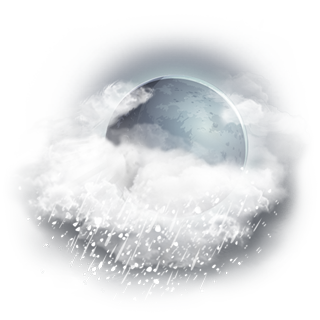When people think of hacking, their first thought is always along the lines of hacking the National Security Agency (NSA) or Facebook. But ’Deis Hacks, “a hackathon for social good” focuses on the good that can come out of hacking. Hosted by the Brandeis MakerLab with Brandeis’ International Business School, the hackathon combines Printathon and Codestellation to incorporate the community.
Printathon Design Challenge is a hack-event that allows teams from different schools to compete and design a 3D-printed creation, according to their website. Codestellation is a 24-hour software and hardware hackathon.
According to ’Deis Hacks’ website, “We are sourcing our hack-challenges from the 30 or so not-for-profit and social enterprise organizations local to Waltham. Instead of having a single hackathon challenge, this event’s theme will fuse design thinking, digital fabrication and social impact to work on real world solutions for non-profit companies.”
At the event, groups were formed and were partnered with a non-profit organization that they would design for. Over a two-day period, they learned about all the non-profit organizations and hacked through the night.
The panel of judges, which was comprised of community activists, technology specialists and educators, judged the groups’ five-minute pitches for how well they satisfied the needs of their non-profit organization and “complexity, creativity, originality, adherence to the challenge and a popular vote,” according to their website.
Ian Roy, the Director for Research Technology and Innovation and the Head of the Brandeis MakerLab, and Professor Gene Miller (IBS) collaborated to create this unique opportunity for students and non-profit organizations in the area. According to an email sent to The Brandeis Hoot by Miller, ’Deis Hacks was a joint effort between the MakerLab and IBS with the Brandeis Board Fellows program that students in Miller’s BUS 297 class participate in.
The class, titled “Leadership Internships in Social Impact Organizations,” is open to all undergraduate and graduate students. “In my class Field Experience in Social Innovation Leadership … students are placed on the boards of local not-for-profits as non-voting board fellows,” Miller told The Hoot. “They are in the classroom with me for a full year where they function as a cohort as they individually learn to lead and serve.”
Miller also explained that the ’Deis Hack teams were tied to the 11 different organizations that the board fellows serve on.
According to an article published by Patch Waltham, the hackathon gives Miller’s students the ability to practice “their leadership skills through teamwork and the pitches: They’ll be the ones pitching the needs of the Waltham nonprofits to the students as participants decide which nonprofit to team up with and help.”
“The dream is to get a scientist with an artist with a business student all on the same team with varied expertise and work together to see the problem from different angles and collaborate,” Roy told Patch Waltham. “One of the most unique things is that Brandeis has no engineering program … They want to see change in the world. Our community is made up of true believers who want to make an impact, and we want to connect them with tool sets that enable them to take their imaginations or ambitions and apply it in reality.”
The winning group, led by Gloria Zheng ’18 MBA ’19, was assigned to work with Leland Home as a non-voting board fellow. Leland Home is “a safe and affordable residence for persons age 62 and over who desire or need assistance in their daily living,” according to their website. Zheng’s win also came with a $1000 prize.
Zheng told The Hoot in an email that she had performed a strength-weakness-opportunities-threats (SWOT) analysis and marketing plan for Leland Home prior to ’Deis Hacks. She also took her team to Leland Home to talk to the director of the home. According to the email, Leland Home currently has eight empty rooms. Prabu Gugagantha ’22, Alex Chang ’22 and Fernando Estrella ’20 were all part of Zheng’s winning team.
“For having a clear image of marketing competition, we also went to other real estates in Waltham to find out the strengths of Leland Home compared to others,” Zheng told The Hoot. “So after the field trip, we all decided to focus on the problem of the marketing side to increase social awareness in our community. So we decided to rebuild our website with pretty promotional video and an online live chat.”
Zheng and her team came up with three different proposals combining marketing and operation at Leland Home. The first proposal is to promote Leland Home through the internet. The team created a promotion website, “in which the family of potential residents can use online chat to get more information of Leland Home,” explained Zheng. “We also create the posters to increase social awareness about Leland Home and the community.”
The second project looked specifically at operation. While visiting Leland Home, Zheng and her team realized that there was a strong lack of communication between not only the residents and employees but also between employees themselves. The team created a Google form that would allow employees to sign in each day and report on what they did and and concerns during their shift.
The final proposal was to make a Raspberry Pi calendar, a low-cost digital calendar that could be put in the dining room of the home. “The residents can check the calendar through the screen during their dining service and employees can change them just through Google calendar,” said Zheng.
They also created a new activity, “Furry Friend,” that would allow the residents to pet the pets nearby Leland Home.


